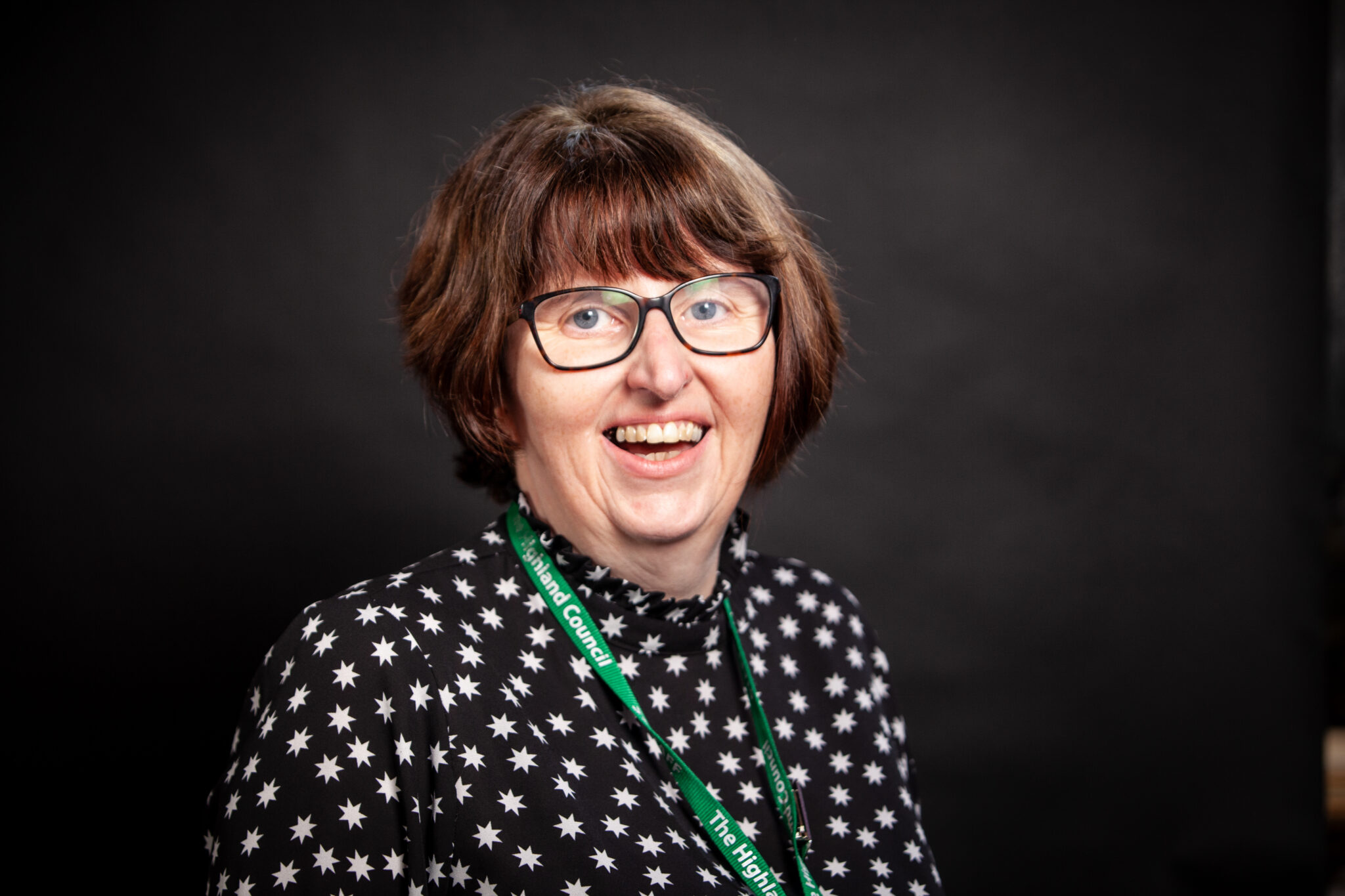Helen Gilpin is a Queen’s Nurse and Nurse Specialist for Looked After and Accommodated Children and Young People in NHS Highland. Learning about FASD has changed the way she approaches her initial consultations with children and young people and has allowed her to explore new treatment options for those she cares for.
I knew from experience that many of the young folk on my caseload had complex needs with origins that we didn’t fully understand. I also knew many of them had been given a diagnosis that I felt wasn’t quite right for them.
During a conversation with Dr Jonathan Sher, QNIS Senior Fellow and Programme Lead for Healthier Pregnancies, Better Lives I had a light bulb moment! Meeting Jonathan has been one of many wonderful things that have happened while becoming a Queen`s Nurse in 2021. Many of the young people I work with had the symptoms of FASD but had never been diagnosed or treated for this. It suddenly made sense. That’s why their present treatments and strategies of care weren’t working.

Helen Gilpin, Queen’s Nurse
Immediately, I wanted to know what I could do in my role as Nurse Specialist for Looked After and Accommodated Children and Young People. I decided to start talking about FASD more, and to make our health assessments more meaningful by considering FASD as a possibility. It’s been empowering talking to people, understanding their lived experiences and explaining to women that no mother actively planned to cause harm by drinking in pregnancy. By better understanding FASD, we can improve the lives of our young people and the people who care for them.
I’ve enjoyed myth busting and challenging statements about the prevalence of FASD with facts. For example, in Scotland alone, it is estimated that up to 1 in 20 people could have FASD. Therefore, it is not a rare condition. FASD is a broad-spectrum disorder, which means people who have FASD are affected differently and therefore strategies to understand and support them vary. After all we are all individuals.
So, in practice, what I am I doing differently is this – I spend a lot more time gathering information regarding a young person’s antenatal, birth and postnatal history, often looking for any indication that suggests they should be assessed for FASD. As I said before, I am doing a lot more to challenge existing ideas about FASD, explaining facts and signposting people to appropriate support services. I am also starting to have conversations with the parents of the future, in the hope that being better informed will allow them to make healthy decisions and better prepare for pregnancy.
Recently, I have also been involved with young adults who have had a diagnosis and never really understood what it meant for them. This is challenging work, as you are discussing their mother`s behaviour/habits before they were born. Many young people have felt relieved after receiving a diagnosis of FASD, feeling that they now have a reason for why they think or act differently from their peers at times.
One of the most powerful things I am doing is talking openly and consistently about FASD. For years it seems some professionals have not wanted to consider the possibility of FASD. The subject is complex and, for many, broaching it could have seemed like blaming a mother. We need to stop thinking like this and ensure we have compassionate, non-judgmental conversations with everyone concerned. We all have to work together to gain greater understanding, knowledge, and a sense of what next steps would be most helpful. That’s how we will make visible a previously invisible, lifelong neurodevelopmental condition in order to then improve diagnostic pathways and enhance ongoing support.